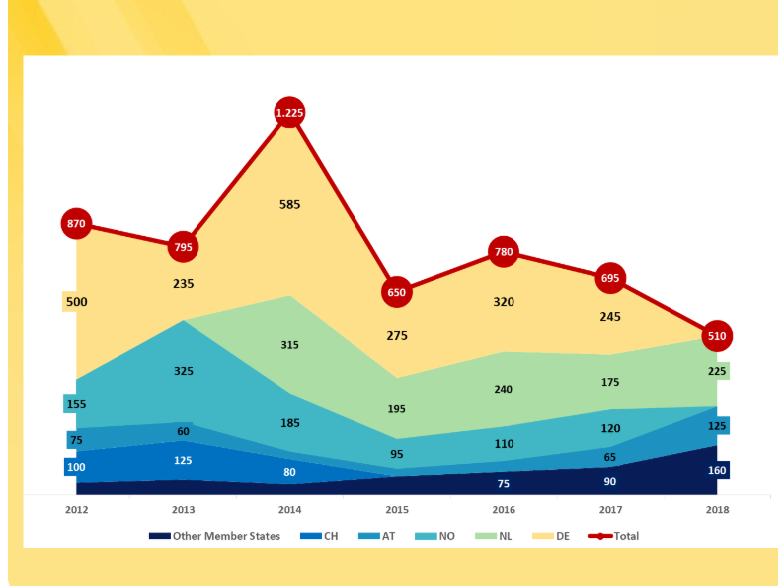What happens with the beneficiaries of international protection who travel back to their countries of origin?
21.06.2019
A refugee is a third-country national who, on account of a well-founded fear of persecution for reasons of race, religion, nationality, political conviction or belonging to a particular social group, is outside the country of his/her origin and is not able to – or, on account of this well-founded fear of persecution, does not want to – invoke protection from that country. Thus, when a beneficiary of international protection revisits his/her country of origin or contacts its authorities, one might wonder – is this person still in need of protection? A forthcoming study by the European Migration Network to be completed in May attempts to find out how frequent this phenomenon is and how are the EU Member States responding.
Even though the issue is important for many Member States, it is a rather difficult one to monitor. Travelling is often done through neigbouring countries, and a mere crossing of the external border does not necessarily mean that the beneficiary of protection has travelled back to his/her country of origin. It is namely the responsibility of the Member State to prove that the person has ceased to meet the conditions for international protection. For this reason, the current statistics are rather limited and do not necessarily reflect the actual scope of this phenomenon.
Adopted decisions on cessation of international protection (all grounds), 2012-2018
Source: Eurostat

Most Member States inform the beneficiaries of international protection about the consequences and restrictions related to returning to their countries of origin. Nevertheless, authorities occasionally hear of cases where beneficiaries of protection have travelled back to their homeland – whether to visit a sick family member, attend a wedding or a funeral, marry, manage a business, or simply cure one’s homesickness.
If the information is verified, most Member States initate proceedings for cessation of international protection, taking into account the time spent in the country of origin, the recurrence and voluntariness of the travel and its reasons. The person will be able to provide explanations. The most resolute state with regard to cessation of protection is Hungary, where the mere fact of visiting the country of origin is sufficient – no explanations can be given by the person.
In many Member States, the decision on cessation of international protection is issued together with a cancellation of residence permit and a return decision. In other Member States, individual circumstances of the person who has lost the status of international protection are assessed before a return decision is issued, possibly resulting in a new residence permit being granted on new grounds instead.
Since 2012, the Police and Border Guard Board in Estonia has only twice initiated the procedure for cessation of international protection due to the person having travelled back to his/her country of origin.
Feel free to check out the Estonian report before the full comparative study is released!